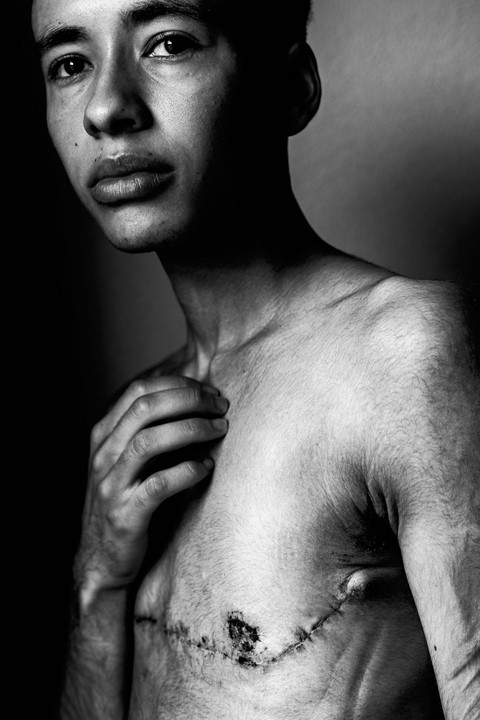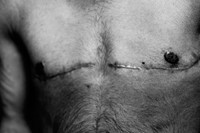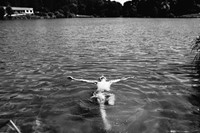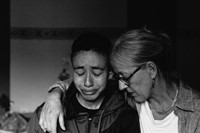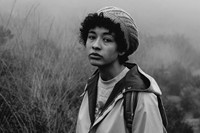Marvel Harris opens up about their award-winning self-portrait journey, MARVEL: an unflinchingly honest depiction of isolation, trans identity, and mental illness
Dutch photographer Marvel Harris has recently been awarded the MACK First Book Award 2021 for their deeply personal portrait collection, MARVEL. Capturing their life and transition between 2014 to 2019, the book is an unflinchingly honest depiction of the complex intersections between trans identity, eating disorders, depression and autism.
Elegantly designed by Sybren Kuiper, Harris’s work of monochrome self-portraiture weaves between devastating moments of isolation and pensive thought; baring scars and pockets of cathartic joy and connection. We spoke to Harris to hear more about their journey and their distinctive photographic process.
“My camera is like my best friend. I find it hard to connect with people, but my camera allows me to be myself. They often say autistic people aren’t social, but I think we are, maybe just in different ways. I don’t like going to large events, but I do want to feel emotional connections with people. I like hugs, but only tight hugs, ones you can really feel. Photography helped me feel that connection. The camera doesn’t judge, it doesn’t care how I look. That’s why I took more self-portraits during this challenging time of my life.
“I never thought I wanted to share this work online because I was primarily doing it for myself. When you photograph for yourself, you take different pictures. If I’d planned to share it, I don’t think my self-portraits would have been as honest and raw as they are. Every photo that I take comes deep from within. I don’t plan how it’s supposed to look, I’m not a photographer who works like that. I work from what I’m feeling in the moment.
“The remote control of my camera feels like an ink pen. When you’re writing, you’re not aware of the pen, you’re just writing. I’ll press the button of the remote control with my toe, and everything still feels natural. I don’t think about the remote or the camera. The camera is there, but I’m still acting as I was.
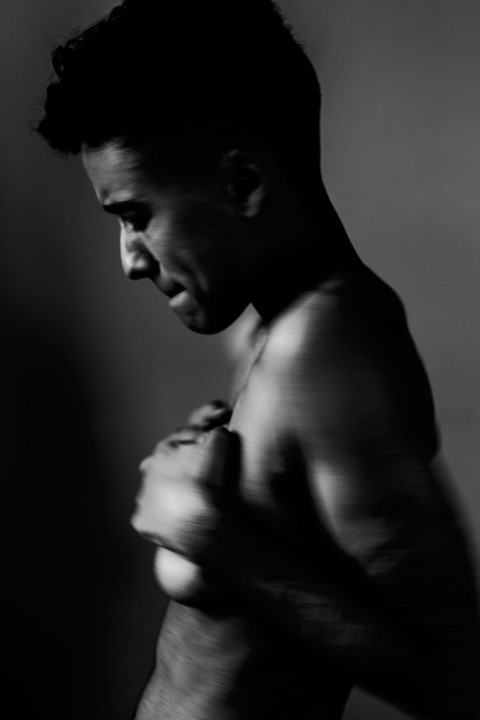
“When I began to share these photos online, I got reactions from people saying my photographs were helping them express what they were going through to their family and friends. That really motivated me to continue sharing my work. When I got the call from MACK, my first thought wasn’t about winning. Instead, I thought, ’Oh, whoa, this means more people might see my work and that means more people might feel less alone.’ I’ve struggled a lot with feeling lonely and suicidal, and I don’t wish anyone to feel as bad as I did. If I’d read more stories about people like me when I was younger, I’d have probably felt less like an outsider. I want to be that to other people.
“People often ask me why I’m not totally happy at the end of the book, after my medical transition. It’s because I’m still human, and humans have emotions: being trans is just a part of me. I’m also Marvel, a person who loves animals, honest conversations, and cooking. Yes, I feel more comfortable in my skin after my medical transition, but I was still struggling with depression and my eating disorder. It’s all intertwined. Eating disorders are never really about food, they’re often about finding control. When I was 13, my period started, and because I was unhealthily underweight, it stopped. I didn’t want my periods as I felt they didn’t belong to me. Being unhealthily underweight made my breasts smaller too. All these kinds of ‘unnecessary’ processes stopped due to being underweight, and this was a positive coincidence for me and a way I felt I could control my body.
“After my mastectomy, I thought it would be easier to start recovering from my eating disorder, but it was still a struggle: I didn’t know how to exist without one. I think that’s related to my autism: I find change very difficult. But life doesn’t come with any guarantees, and sometimes you have to jump in with blind faith.
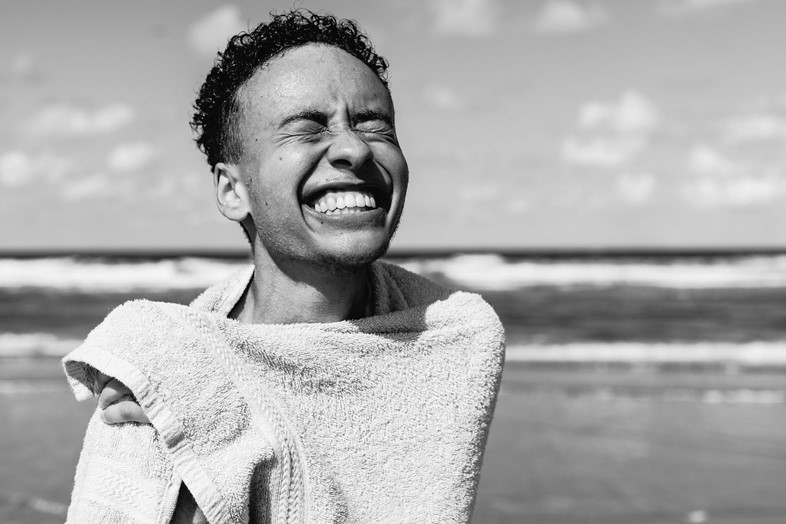
“The only way to know if I could feel trans joy was by transitioning. Psychologists would ask if I was 100 per cent sure, thinking my need to transition was a result of my autism. Being autistic does relate to how I understand and experience gender, but it didn’t cause my gender dysphoria. Ultimately, I believe there’s always some kind of doubt, that’s just part of being human. If it doesn’t feel right, you can always stop. Like, throughout the book, I identified as a man, but now I identify as non-binary. I think more medical professionals should support trans or gender non-conforming people.
“When I was undergoing treatment there was so much toxic masculinity. My therapist asked me why I was still struggling with my eating disorder, saying men are supposed to work out or whatever. But why do you need a lot of muscle to be a man? Each man is different, and each woman is different. There are so many ways to be a man, and there are so many ways to be a woman. Nobody is the same. I want to experiment with nail polish or with wearing earrings. I struggle when people see me as a cisgender person; I want people to see me as queer. I still find that scary sometimes, but I believe stepping into your own truth is one of the most courageous things you can do. When everyone is more honest with themselves, I think the whole world will be a nicer place.”
MARVEL by Marvel Harris is published by MACK Books and is available now.
